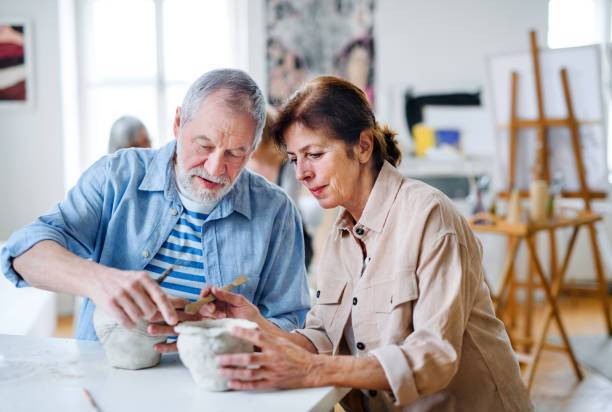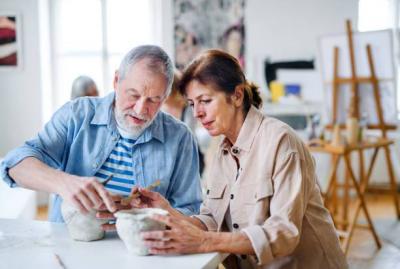A recent study revealed that engaging in artistic activities as one ages is a beneficial pursuit for mental health, according to an article published by Newsweek, citing the journal Frontiers in Public Health. The study examined the relationship between art and mental health, involving 2,843 adults born between 1946 and 1964. The data showed that adults who participated in any artistic recreational activities during the year-long study reported significantly better mental and physical health compared to those who did not engage in any artistic recreational activities at all.
Christina Davis, a researcher in the study and director of the Centre for Arts, Mental Health and Wellbeing at Western Australia University, stated in an interview with Newsweek that the variety of art forms tested by participants ranged from creative expression to experiencing the art of others. She added, "Participants in the study engaged with the arts in various ways, including attending artistic events (such as concerts, theater, films, and art exhibitions), creating art (such as painting, coloring, handicrafts, creative writing, photography, singing, and dancing), and learning about the arts (such as attending workshops and courses)," noting that "some participants also volunteered or were members of an arts organization."
Dr. Davis explained that the type of art that individuals find most beneficial to their health varies from person to person, emphasizing that literature confirms that "individual differences are important, meaning that one should engage in the art form that makes them feel comfortable. For some, it might be listening to music, while for others, it could be singing, dancing, painting, or photography."
The study’s findings also indicated that it is not necessary for a person to be good at art to enjoy better mental health, regardless of skill level. Dr. Davis stated, "One does not have to be good at art for it to be beneficial. It is about trying and participating in artistic activities and events that make one feel satisfaction." She added, "According to the literature, outcomes of participating in the arts include happiness, joy, enjoyment, relaxation, connecting with others, and creating good memories."
The study’s results could be beneficial for the elderly in nursing homes, as they may inspire more art-based activities for residents. Dr. Davis noted, "The study results suggest that activities, events, and programs that encourage participation in recreational arts could be a beneficial approach for healthy aging for seniors living in the community and in elder care."
Researchers hope to continue exploring the ideal "dose of art" for seniors, looking into how much time seniors need to spend engaging with art for positive effects on mental and physical health. For the general population, it is believed that the dose of art is about two hours per week.




